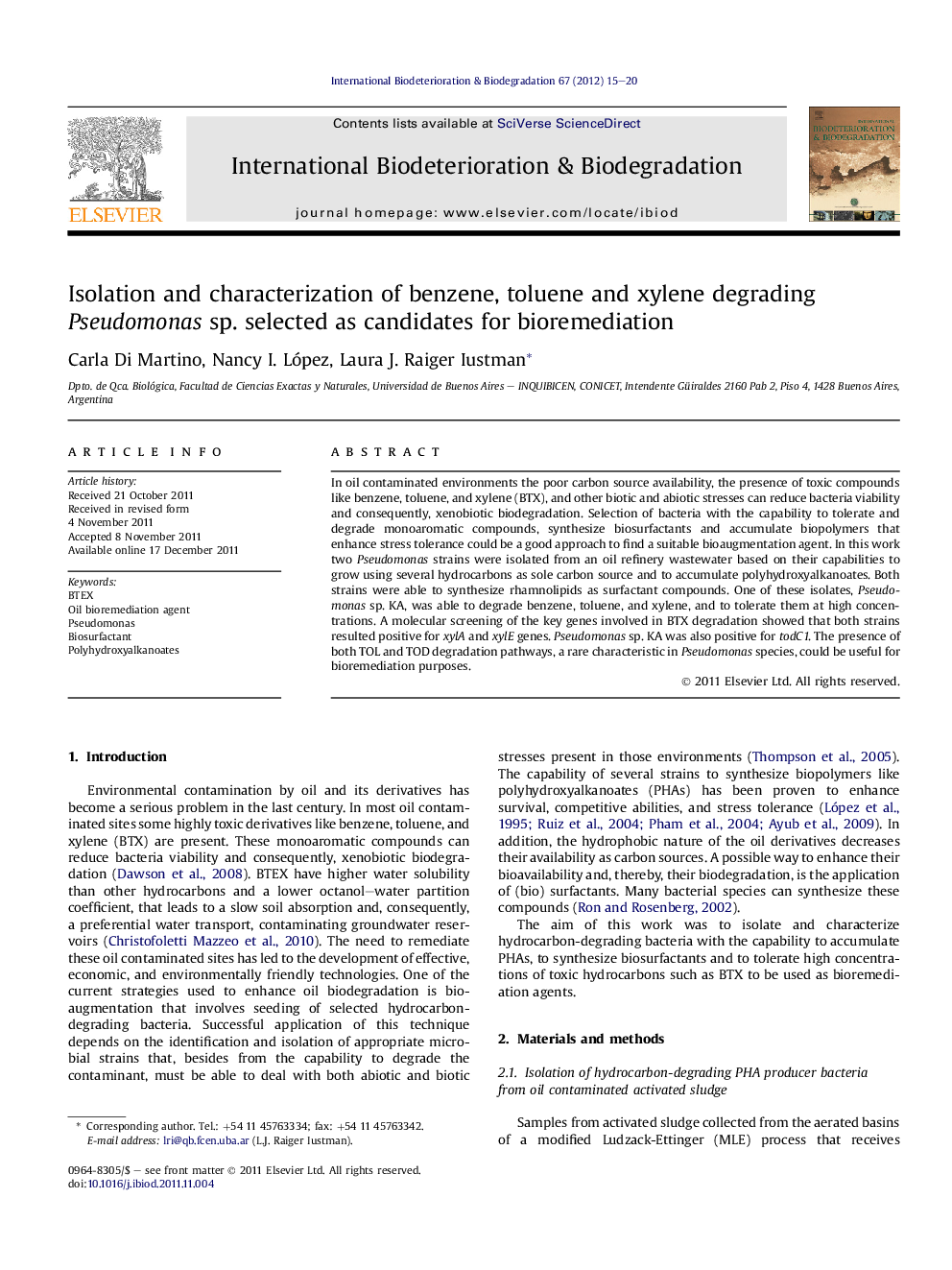| Article ID | Journal | Published Year | Pages | File Type |
|---|---|---|---|---|
| 4365266 | International Biodeterioration & Biodegradation | 2012 | 6 Pages |
In oil contaminated environments the poor carbon source availability, the presence of toxic compounds like benzene, toluene, and xylene (BTX), and other biotic and abiotic stresses can reduce bacteria viability and consequently, xenobiotic biodegradation. Selection of bacteria with the capability to tolerate and degrade monoaromatic compounds, synthesize biosurfactants and accumulate biopolymers that enhance stress tolerance could be a good approach to find a suitable bioaugmentation agent. In this work two Pseudomonas strains were isolated from an oil refinery wastewater based on their capabilities to grow using several hydrocarbons as sole carbon source and to accumulate polyhydroxyalkanoates. Both strains were able to synthesize rhamnolipids as surfactant compounds. One of these isolates, Pseudomonas sp. KA, was able to degrade benzene, toluene, and xylene, and to tolerate them at high concentrations. A molecular screening of the key genes involved in BTX degradation showed that both strains resulted positive for xylA and xylE genes. Pseudomonas sp. KA was also positive for todC1. The presence of both TOL and TOD degradation pathways, a rare characteristic in Pseudomonas species, could be useful for bioremediation purposes.
► We isolated two pseudomonas strains able to grow in hydrocarbons as sole carbon sources. ► Both strains were able to synthesize polyhydroxyalkanoates and rhamnolipids. ► Pseudomonas sp. KB showed a good emulsification activity. ► Pseudomonas sp. KA was able to degrade BTX and tolerate them at high concentrations. ► In Pseudomonas sp. KA both TOL and TOD BTEX degradation pathways could be detected.
